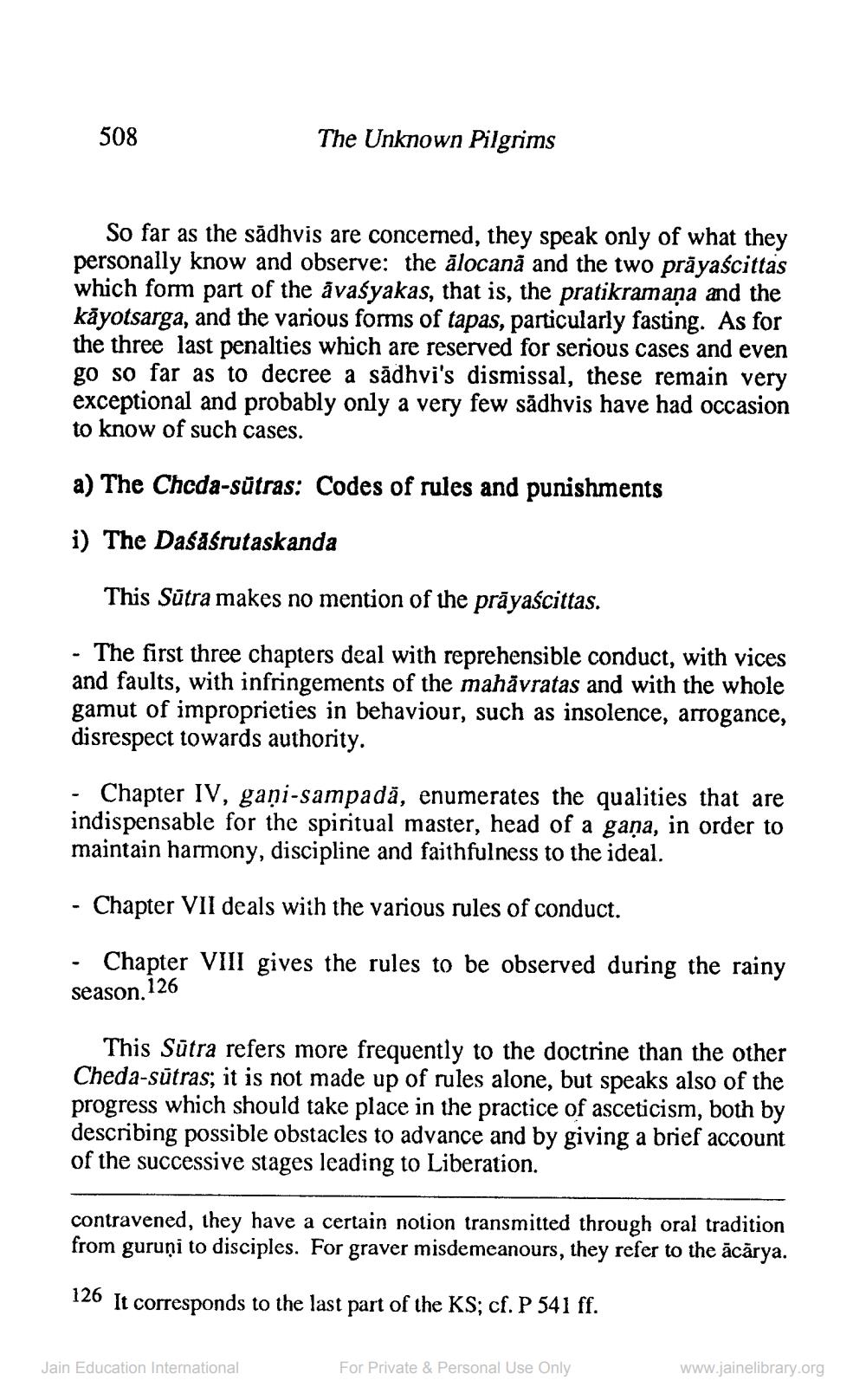________________
508
The Unknown Pilgrims
So far as the sădhvis are concerned, they speak only of what they personally know and observe: the ālocană and the two prāyaścittas which form part of the avasyakas, that is, the pratikramana and the kāyotsarga, and the various forms of tapas, particularly fasting. As for the three last penalties which are reserved for serious cases and even go so far as to decree a sādhvi's dismissal, these remain very exceptional and probably only a very few sādhvis have had occasion to know of such cases.
a) The Chcda-sütras: Codes of rules and punishments
i) The Dašaśrutaskanda
This Sūtra makes no mention of the prāyaścittas.
- The first three chapters deal with reprehensible conduct, with vices and faults, with infringements of the mahāvratas and with the whole gamut of improprieties in behaviour, such as insolence, arrogance, disrespect towards authority.
- Chapter IV, gami-sampadā, enumerates the qualities that are indispensable for the spiritual master, head of a gana, in order to maintain harmony, discipline and faithfulness to the ideal.
- Chapter VII deals with the various rules of conduct.
· Chapter VIII gives the rules to be observed during the rainy season. 126
This Sūtra refers more frequently to the doctrine than the other Cheda-sūtras; it is not made up of rules alone, but speaks also of the progress which should take place in the practice of asceticism, both by describing possible obstacles to advance and by giving a brief account of the successive stages leading to Liberation.
contravened, they have a certain notion transmitted through oral tradition from guruņi to disciples. For graver misdemeanours, they refer to the ācārya.
126 It corresponds to the last part of the KS; cf. P 541 ff.
Jain Education International
For Private & Personal Use Only
www.jainelibrary.org




